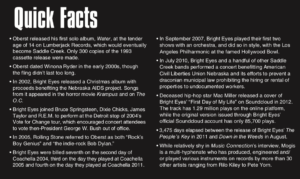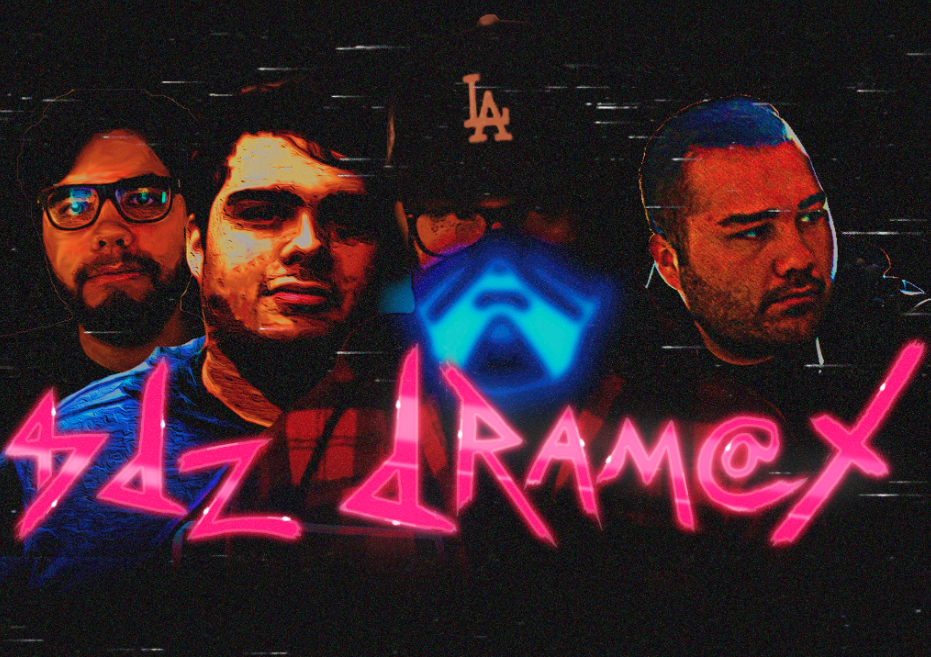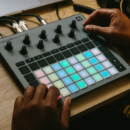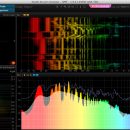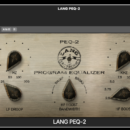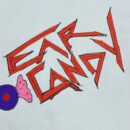The last time Bright Eyes released a new studio record, America was only a couple of years into the Obama presidency, Adele had the bestselling album of the year, the Arab Spring was in full swing and Congress was fiercely waging a “War on Women.” Needless to say, a lot has changed in the nine years since then.
But in August, singer-guitarist Conor Oberst, multi-instrumentalist Nate Walcott and guitarist/multi-instrumentalist Mike Mogis dropped Down in the Weeds, Where the World Once Was, boldly enter- ing a rapidly changing world that appears headed for Aldous Huxley territory. Today’s climate is especially rough on musicians, who are confined to staying at home amid a raging pandemic, and whose fans are less willing than ever to spend money on music because of severe economic anxieties. Moreover, civil liberties are eroding by the day, likely to the horror of an Omaha band with a long track record of supporting human-rights campaigns.
One might be inclined to think that Oberst and Bright Eyes have returned to vent about the growing number of injustices, help galvanize the masses ahead of November’s election or at least boost spirits while the pandemic, police brutality against Blacks and other catastrophes rage.
The first stanza on Down in the Weeds, finds Oberst singing “Got to keep on going like it ain’t the end/ Got to change like your life is depending on it/ It’s a long time coming and we’re taking it in/ What a wild ruse” to kick off “Dance and Sing.”
On the following song, “Just Once in the World,” Oberst croons more timely lyrics: “This world is waving goodbye ... So cut a rug, let’s throw a party ... Swallow hard and say you’re sorry/ Just admit what you have done.”
What could be even more stunning than Bright Eyes’ return after nearly a decade is that Oberst wrote those lyrics––and in fact the entire new album was made––before the pandemic hit. We recently spoke with Bright Eyes’ three mainstay musicians about their eerily prescient new record, which new Stephen King adaptation two of the band members are scoring, and their reaction to the appearances of two surprise guests on Down in the Weeds.
Music Connection: How is quarantine life treating you guys?
Conor Oberst: We’re doing all right. I’ve been doing interviews, hanging with my dog. I’ve learned that there are two kind of people in the pandemic world: those who are motivated to make and doing things, and those who are not. I’m squarely in the latter category.
Nate Walcott: I’m working on scores for a TV show, making music and film and TV. [Mike and I have] worked on stuff steadily, and we both have families, so it makes us happy to go in with the record coming out. It’s been pretty hectic.
MC: Which TV shows and films are you currently scoring?
Walcott: Mike and I are currently scoring a mini-series for CBS called The Stand, based on the book by Stephen King. We’ve scored three films together over the years, and I’ve scored several on my own.
MC: You also mentioned family life.
Walcott: Yes, what I meant was, Mike and I both have children. I only mentioned that to describe how hectic it’s been this year, what with the shutdowns, the schools be- ing closed, etcetera.
MC: Are you enjoying the press circuit more or less than before the pandemic?
Oberst: It’s never been one of my favorite parts, I’ll say that. This has been a little interesting because you don’t have to leave your house ever ...
Mogis: ... You’re not supposed to leave your house ...
Oberst: ... so it’s been easier than some press tours. But there is some fun in going to New York and Europe and seeing people there. The pandemic has also got- ten me out of photoshoots, which I hate.
Mogis: A Zoom interview was the most fun we did. It’s like an adaptive reality. Since there isn’t much social activity anywhere, Zoom interviews are the most active thing I do.
Oberst: I don’t know if that’s true for me––in a way it sounds cliche or self-aggrandizing––but everything hits me pretty hard, so it hasn’t been helpful to be an artist. I haven’t been able to turn all these negative emotions into something productive. Part of me wishes I had some of my friends around. They have mundane jobs, and they sit at their laptops all day and do their things, some mindless tasks.
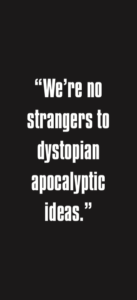
Mogis: I built a [ARC Studios] behind my house, so I don’t have to go anywhere. I’ve been social distancing for the last 20 years!
MC: Did Bright Eyes record the whole album in Mike’s studio?
Walcott: We recorded a batch of songs–– everything that Flea plays on, about half of the record––at a studio out here in L.A. called Electro-Vox. We did the orchestra and choir sessions at Capitol Studios (also in L.A.) and recorded another batch of songs at ARC in Omaha.
MC: Did you write and/or produce the majority of the new album before the pandemic started?
Oberst: We started in April 2018, writing the music and all, and then we went into the studio to record in 2019. So yeah, the songs were all written long before the pandemic. We’re no strangers to dystopian apocalyptic ideas. I kinda had an obsession with death as a kid. I was in the right place at the right time, and hit it home.
Walcott: We mastered the record at the beginning of February. It was all done after that.
Oberst: It might’ve gotten pushed back a week or two due to the quarantine.
MC: You haven’t played a show since 2011. How weird will that be when you inevitably perform again? Do you remember the feeling of being onstage?
Oberst: It was really disappointing to have the tour pushed back. We had a lot of plans and a big visual element to the show, and we were just really excited.
Walcott: I had already started quite a bit of work on re-orchestrating stuff. Rather than travel with a bunch of strings, we’d bring a couple of players and hire other musicians locally in the markets we were playing in. I would have arrangements that we needed for really small venues, and then more for our L.A. show [three dates at the Hollywood Palladium]. The New York show [at Forest Hills Stadium], we were going to have to go as big as possible too. It was quite a turnaround, to have all our plans all out before going on the road.
For this record, we had an orchestra on a handful of songs and a choir. It takes a lot of work to trim that down and still make it sound good. This tour has its own sets of opportunities that needed to be addressed. It’s going to be fun to pick up local players for each city, just based on venue size and how many people we can fill onstage. But we leave that to the managers––also, to figure out social distancing.
Oberst: We plan to play at earliest next summer. In theory, there will be something going in terms of a vaccine or something. I’m interested in seeing how other bands handle it. I don’t have a whole lot of desire to play a big venue anymore.
MC: It sounds like you’re not exactly a socialite, Conor. Did you really wear a kilt to a date, per the lyrics on “Persona Non Grata”?
Oberst: “Persona Non Grata” is an ode to this old friend of mine in New York, Butch Hogan, who’s [a photographer who is] pretty controversial. When I first met him, he’d often be wearing a kilt and combat boots and a Moorhead shirt or something like that. It’s a flashback to ... every year in New York, they have a crazy Halloween parade, everyone goes and marches around, and it’s always kinda crazy, so it is safe in some realities to wear a kilt.
MC: What about the song “Mariana Trench”? Have you researched it in depth? What do you think is in there? Will we ever find out?
Oberst: I was just trying to express highs and lows [more generally]. Mount Everest versus the Mariana Trench. There isn’t too much more to it than that. But yes, I am fascinated by exploration.
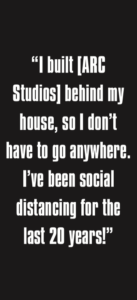
MC: What has Bright Eyes done better on this record than any previous record?
Oberst: I don’t know what we did best. I think I’ll associate [Down in the Weeds] with this period of time, so unfortunately I’ll remember the pandemic well. But there was a lot of cool [aspects to it]––playing with Flea and Jon Theodore was a different experience, and it’s a reflection of things from me personally in my family life.
Walcott: The fonder memories will gear more toward––not that we’re not having fun at this moment––but toward the process of writing. I loved that period of time. I loved that first year of putting together that first batch of music. We went about this record in a slightly different way. We had so much fun in the studio with Jon and Flea. It was so enjoyable: the choir, the orchestra. I feel personally after having been doing more stuff for a while, approaching it on this record, I was able to do it personally with more calm and focus after having so many times in the past where I didn’t approach it with so much calm and focus. We had so much fun playing with these guys.
MC: Can you elaborate on how you recorded this album “in a slightly different way”?
Walcott: Sure. Conor brought up early on, before we got started, the idea of wanting to write collaboratively. So I would bring in a bunch of ideas to those writing sessions we had in 2018 to show Conor and Mike––little demos I’d made of chord progressions on piano or keyboards, set to a simple drum machine beat or something, and with maybe a couple extra little musical element––ideas for starting points for verses, choruses etc., with the idea that they would be a little different from Conor’s normal set of go-to's as far as harmonic structure and chords are concerned, but also familiar enough to still feel right for a Bright Eyes record. The goal was to come up with some things with some subtle but unexpected twists here or there in the chords and harmonic structure or feel, in order to inspire some vocal melodies that maybe wouldn’t have occurred otherwise.
I’d show them a handful of ideas and we’d maybe settle on a few that Conor gravitated towards the most melodically, and he’d workshop vocal melodies on his own, and then we’d move chords around to fit his ideas, chop things up here and there a little, etc. So there would be a process of back and forth and trial and error involved with making the songs that way. Examples of songs that came out of this approach were “Pan and Broom,” “Forced Convalescence” and “To Death’s Heart.”
Other times Conor would bring in demos of songs that were fairly fully formed but I’d rework them harmonically––i.e. change the chords a bit––to kind of take them in a slightly different direction or give them a different feel. “Dance and Sing” is an example of a song with which we used that approach.
Those were two different new approach- es that we used. We had worked like that a little bit in the past, but not nearly to the extent that we did on this record. And we wanted the record to feel balanced, so there were also some songs that Conor brought in that we pretty much left alone as far as the structure/chords/melodies are concerned, and Mike and I just focused on the production and arrangement.
MC: More specifically, how was it playing with Jon Theodore and Flea?
Oberst: It was amazing. On paper, it doesn’t make tons of sense––they’re coming from more of a modern-rock world, but they’re such fantastic musicians that they can play in any style and are really open-hearted and open-minded. They came
in and wanted to do whatever was best
for the songs. They come from different sensibilities than us.
Walcott: It’s a weird twist, particularly with Flea. He and I come from the same background in the music we love––jazz–– and he’s a trumpet player, so we’ve been really connected by that. When he came into the studio, we had a harmony rooted in jazz music. He understands things on a pretty deep level.
I just toured with the Red Hot Chili Peppers starting in 2016; that was the main thing that helped me get aboard. I had mentioned to him in 2018 ... I said, I was stepping back and asked him if he’d play with us.
MC: On which songs do Flea and Jon Theodore perform? I assume they play the trumpet and drums, respectively.
Walcott: Jon plays drums on every song and Flea plays bass (not trumpet––that’s me playing trumpet on the solos on “Comet” and “Stairwell,” and the orchestra trumpet players on the orchestra stuff) on the following: “Dance and Sing,” “Mari- ana Trench,” “One and Done,” “Stairwell Song,” “Forced Convalescence,” “To Death’s Heart” and “Comet Song.”
Mogis: It felt like they were conscious decisions to employ some instrumentation choices that were touchstones to other records we had in the past that we maybe intentionally did to give [this record] an essence of nostalgia. The hammer dulcimer or arrangements we streamlined with more melodies, like on Lifted or lo-fi, that called back to Fevers. You learn new tricks and learn to mix a certain way and distill things down a bit more creatively. Those elements are new to the production of this record.
Oberst: We did a location record, like a lot of our older stuff, which I like.
Walcott: I really wanted to make the melodies on a handful of songs really clear, and then go in an opposite direction with a psych song like “One and Done.”
